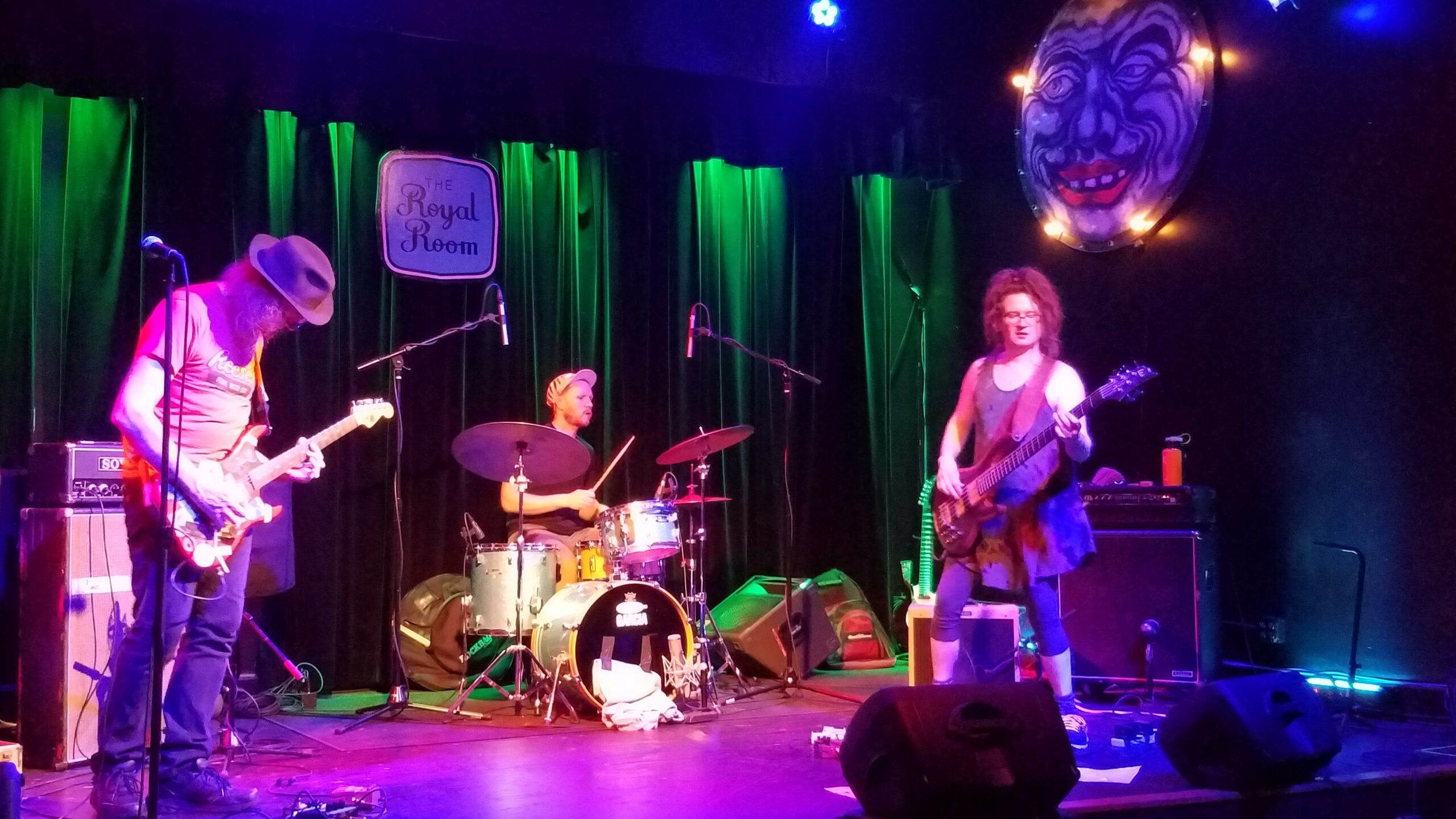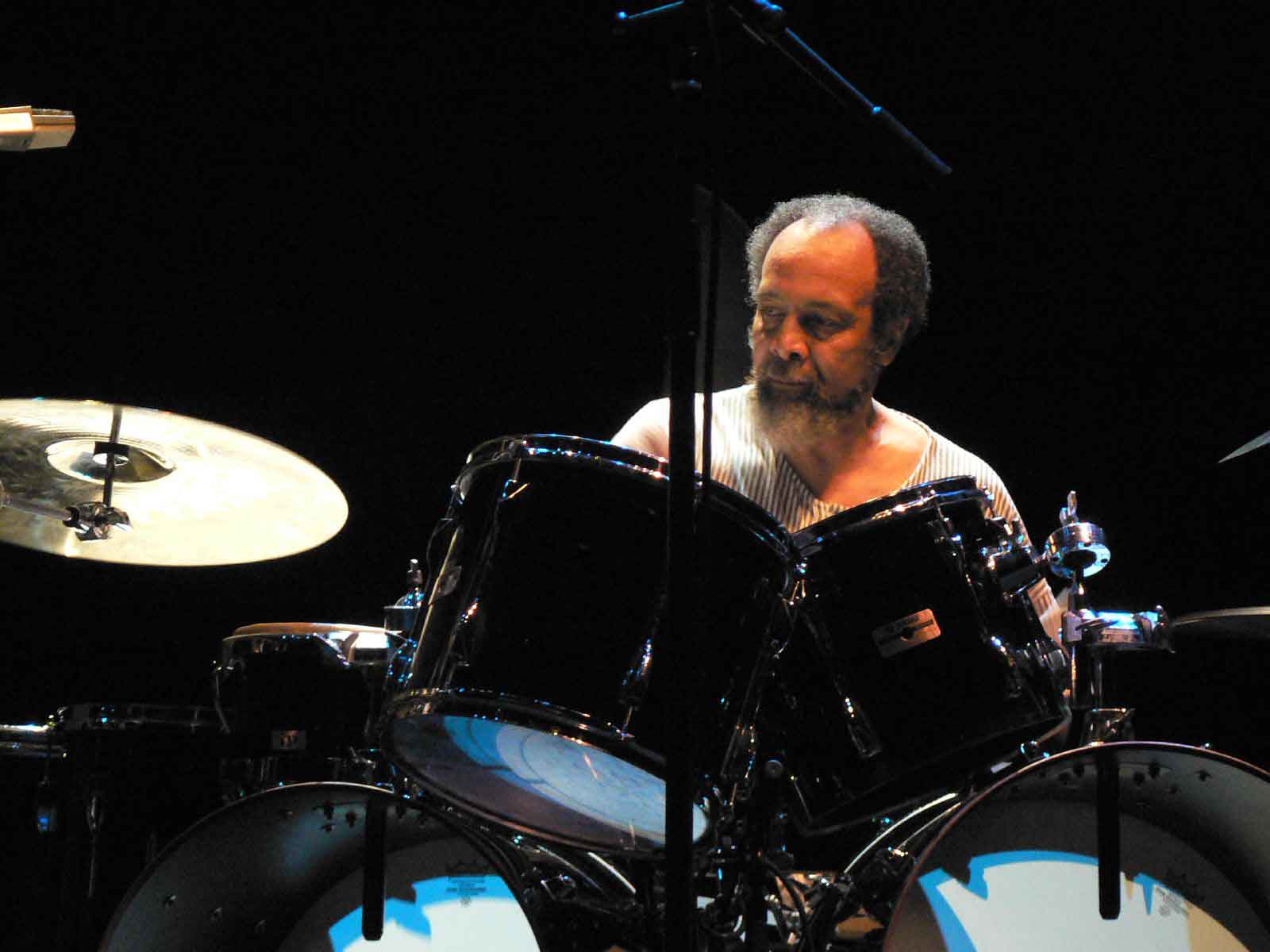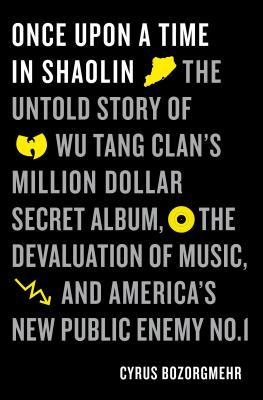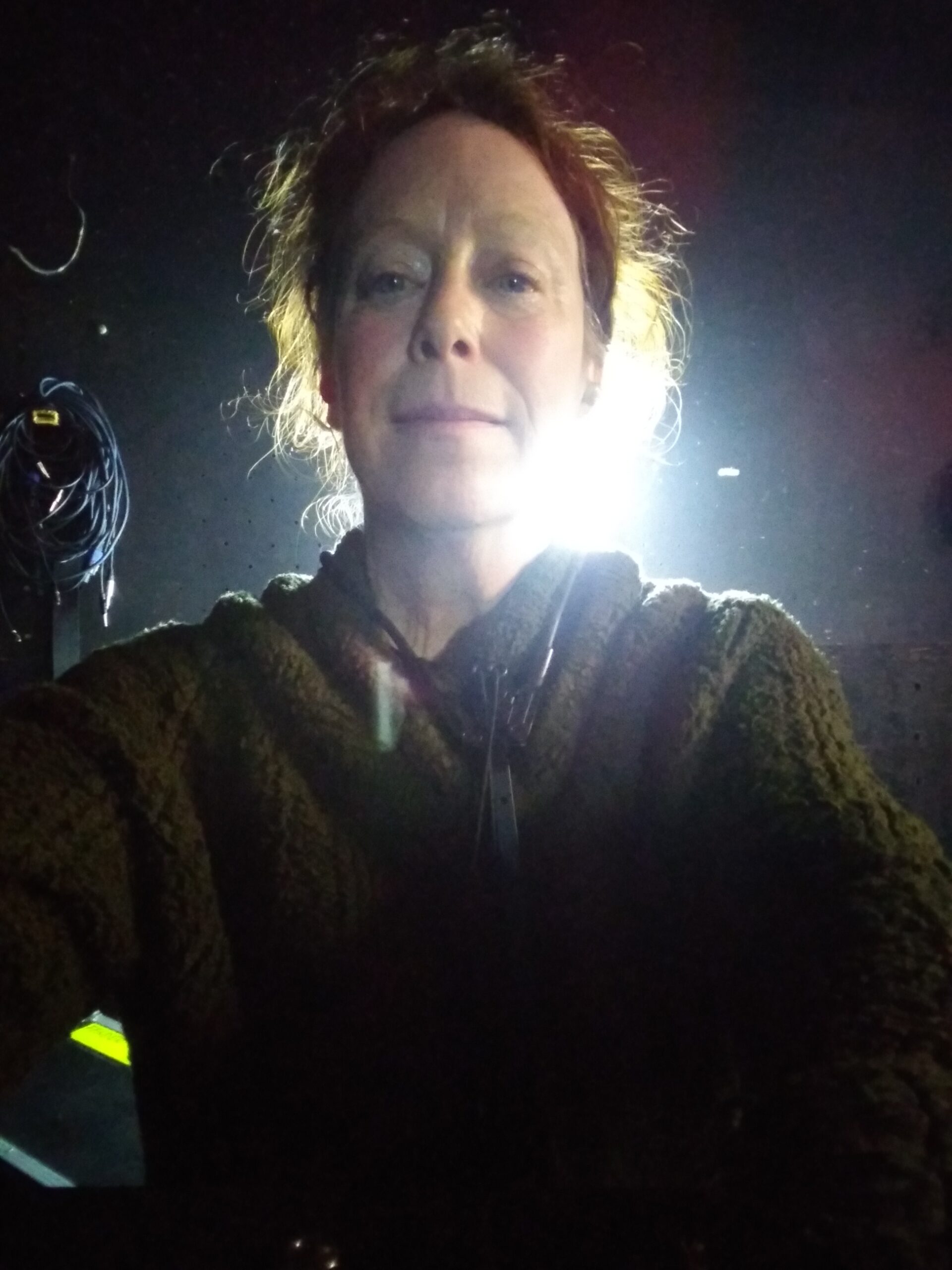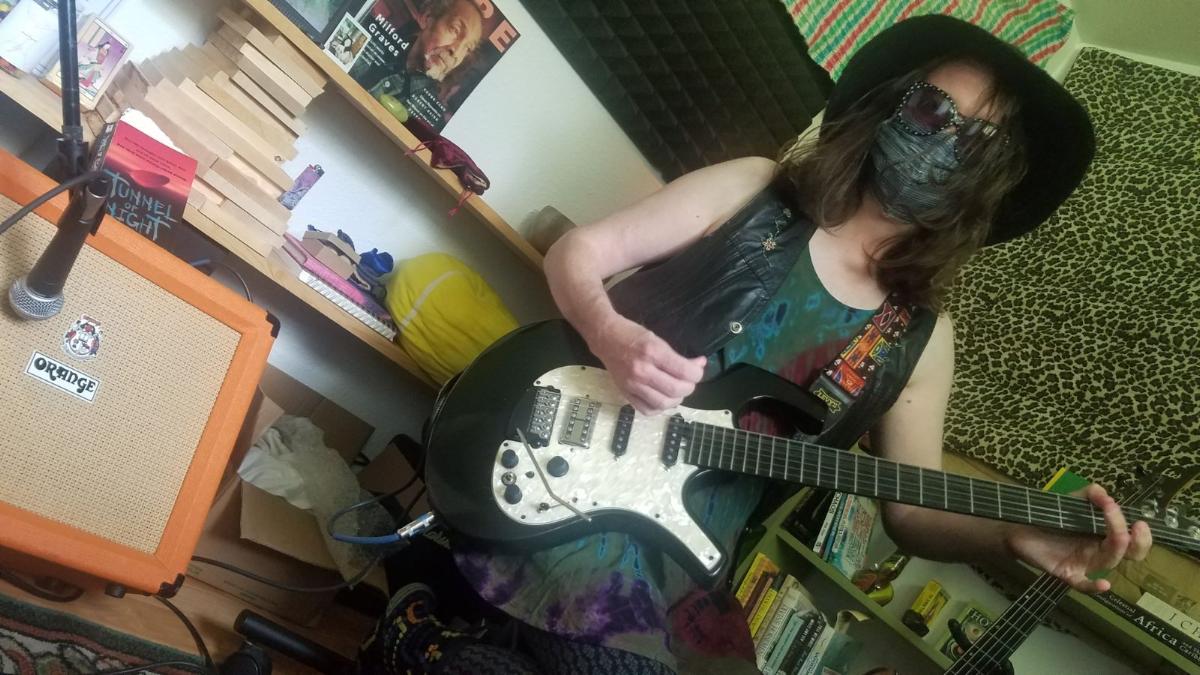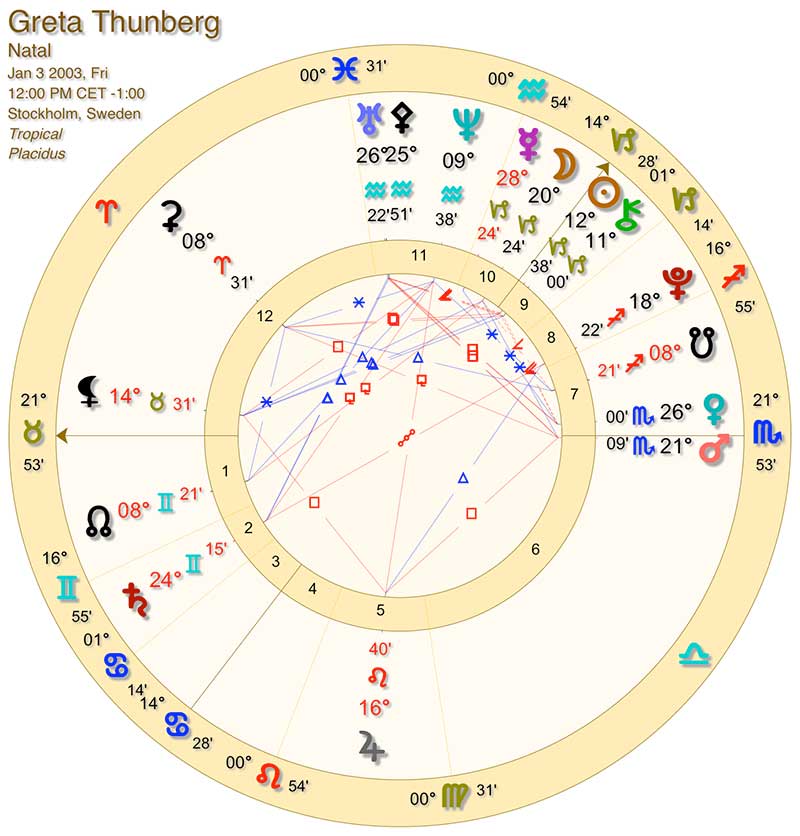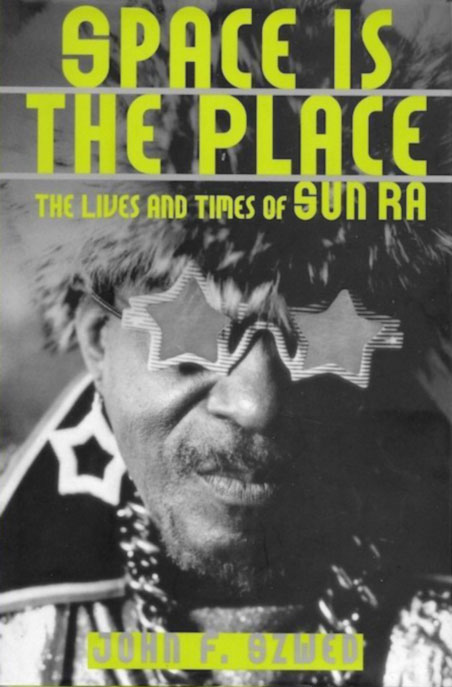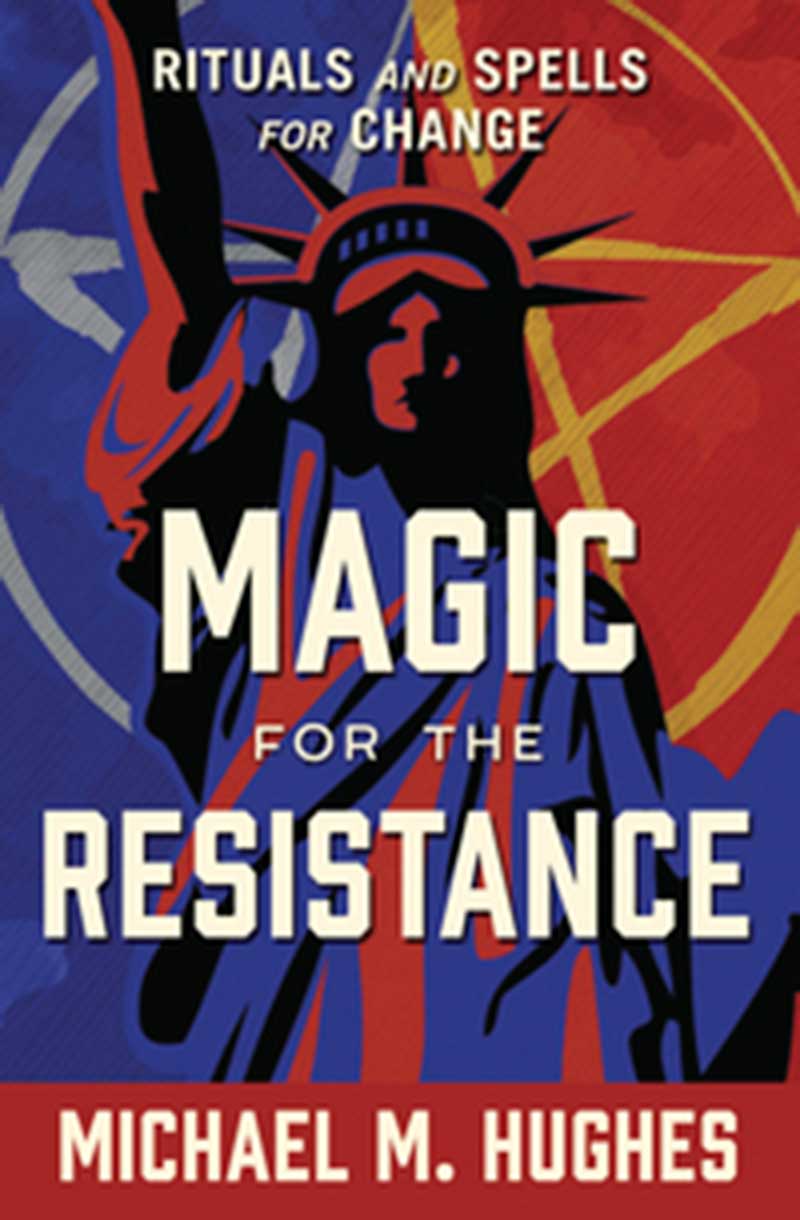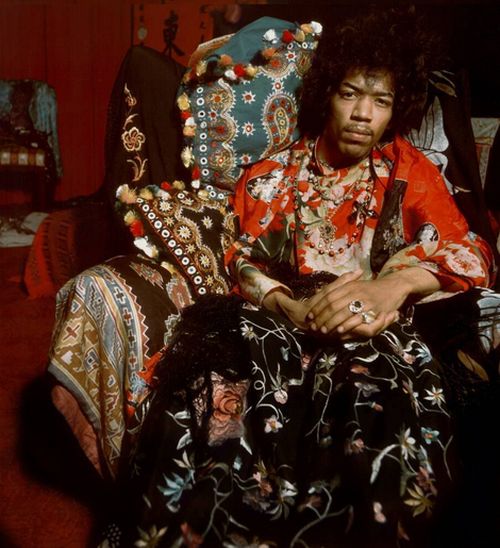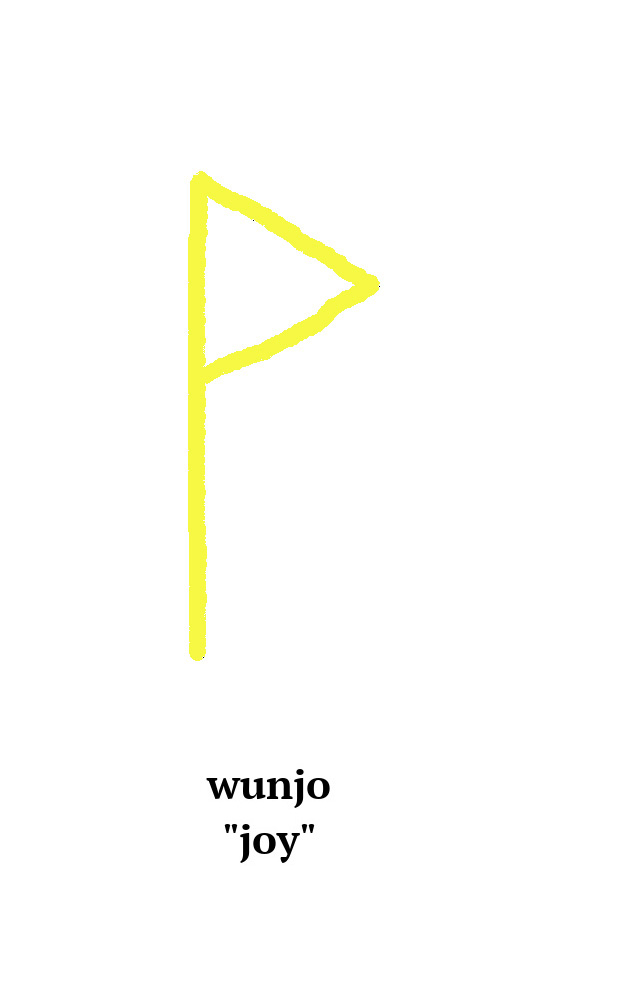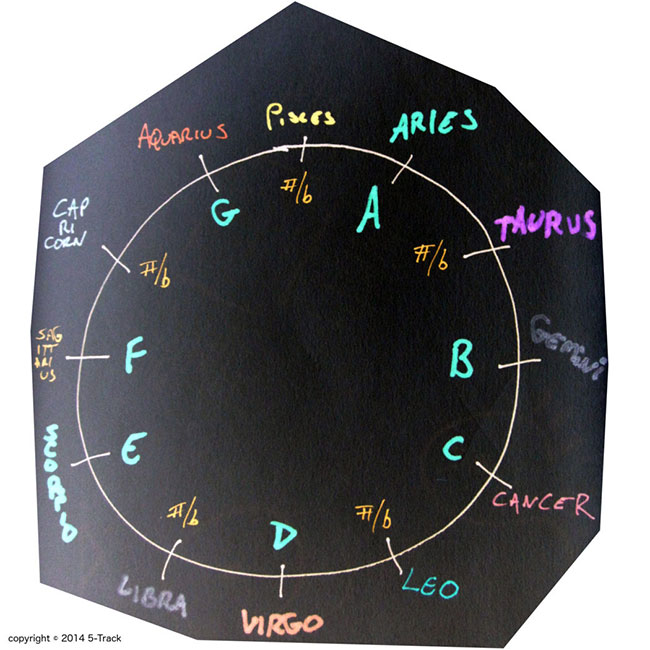AD: A Salish Sea parcel of wisdom is that songs are hunters. And in the case of Truth Is Up For Grabs, I am ecstatic prey!
The music was born as individual sketches, and over the years has evolved and integrated into a work that makes my heart literally sing.
When heard together, these pieces solve the puzzle of who I am as a composer.
I’d love for all people to experience my ~ or any ~ music’s ability to create unity and wonder. It can indeed be magic.
On October 11 2019, back when the world was young, Z & I took in Truth Is Up For Grabs, a chamber suite composed by Amy Denio, at the Chapel Performance Space, in the Good Shepherd Center of Seattle.
& lo, this was a good decision.
Amy Denio is an astonishing musician. I have heard her sing, play saxophone, guitar & bass, accordion, & various other things, not all of which I know the names of, not all of which would typically be considered ‘instruments’ — all with virtuosity and grace.
& Amy Denio is a composer. Defined simply, this means she applies intention to sound.
Amy’s music is & has always been playful as well as evocative.
This season, with musicians mostly staying home until shows, lessons, recording sessions, are once again considered safe, she says:
I’ve been composing up a storm, lately composing songs dedicated to places in which I’ve lived. I create music out of the numbers of infected/dead in each place along with the titles of the cities. A week ago I created ‘Taipei’ starting with field recordings I made when I lived in Taiwan:
TAIPEI
and then on Sunday started ‘Trieste’, which started as an ugly awkward non-idea, and turned into this:
TRIESTE
From non-idea to beauty.
Back to Truth Is Up For Grabs:
There were many musicians involved, twenty or so, including at times Amy herself. Some of the pieces have lyrics, but in this instance all were presented as instrumental (with the understanding that voice is an instrument). The Chapel space, being most lusciously resonant, functions as an instrument as well.
A video was projected, quite large, behind the players. It was a lot to take in, or, enough to overwhelm.
On the 6th piece, ‘L’Abbraccione’, Amy joined the ensemble on vocal & on brač, which my notes describe as a “Croatian mandolin”. One day the instrument, which she’d had for some time, spoke up:
“You need to write a song on me today!”
& so she did.
Shortly after the performance, the group checked in at Seattle’s Avast! studio, to document. This was a wonderful thing to do. The resulting recordings are lovely.
The notes on the album say: “This musical suite is inspired by current events, the political economy of war, and by poems written by Pablo Neruda.”
& while it is tempting to talk about the music we saw performed, its social significance & that of the video accompaniment, how it made me feel & what I recall of its structure & contour, I will instead direct you to the recording, that you may have your own experience:
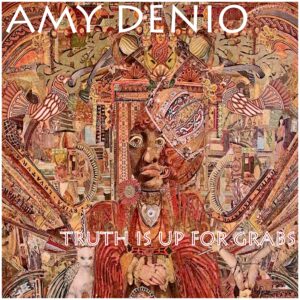 Amy Denio — TRUTH IS UP FOR GRABS
Amy Denio — TRUTH IS UP FOR GRABS
After the second tune, ‘El Gran Orinador’, Amy suggested to the audience that everyone should try composing music.
“It’s easy and fun,” she said. “And if you don’t know what you’re doing, that’s probably better.”
Amy was kind enough to answer a few questions by email:
5T: You told the audience at The Chapel that composing music is “easy & fun”. Is composing ever difficult for you, or has it always flowed easily & naturally? Do you ever lack for things to express?
AD: My predisposition as a musician and artist is to improvise. That’s when I am at home, when I shut off the self-criticizing mechanisms and with any luck enter ‘the zone’.
As a composer, I rely on this open state to come up with solid ideas. I’d say generally it is actually ‘easy and fun’, though more than once I’ve experienced something like a creative ‘still-birth’, when I’m trying too hard to make a song come to life. My most successful pieces are ones that come naturally, effortlessly.
5T: I know at least a few players who think of improvisation as something mystical, impossible to practice or teach. Do you feel that way?
AD: I have taught dozens of workshops on improvisation through the years.
The main point is to let go. Stop caring about what other people think of you. Leap into the void. Trust your intuition.
Make a mistake ~ sometimes mistakes solve life-long problems!
5T: You also told the audience: “If you don’t know what you’re doing, that’s probably better.” The sense of play implied by this statement is very evident in your music. & at the same time, you are very adept. Do you ever find that technique or theory get in the way of composition? Of performance? Do you practice or teach not-knowing?
AD: ‘Not-knowing’ is not something that I teach. But I highly recommend it to collaborators when improvising music!
For me it’s more a matter of avoiding hyper-consciousness while playing ~ entering ‘the zone’ as athletes do, unhindered by judgment / reaction / defense.
When I improvise, the sense of knowing is still existing down there in my gut instinct…
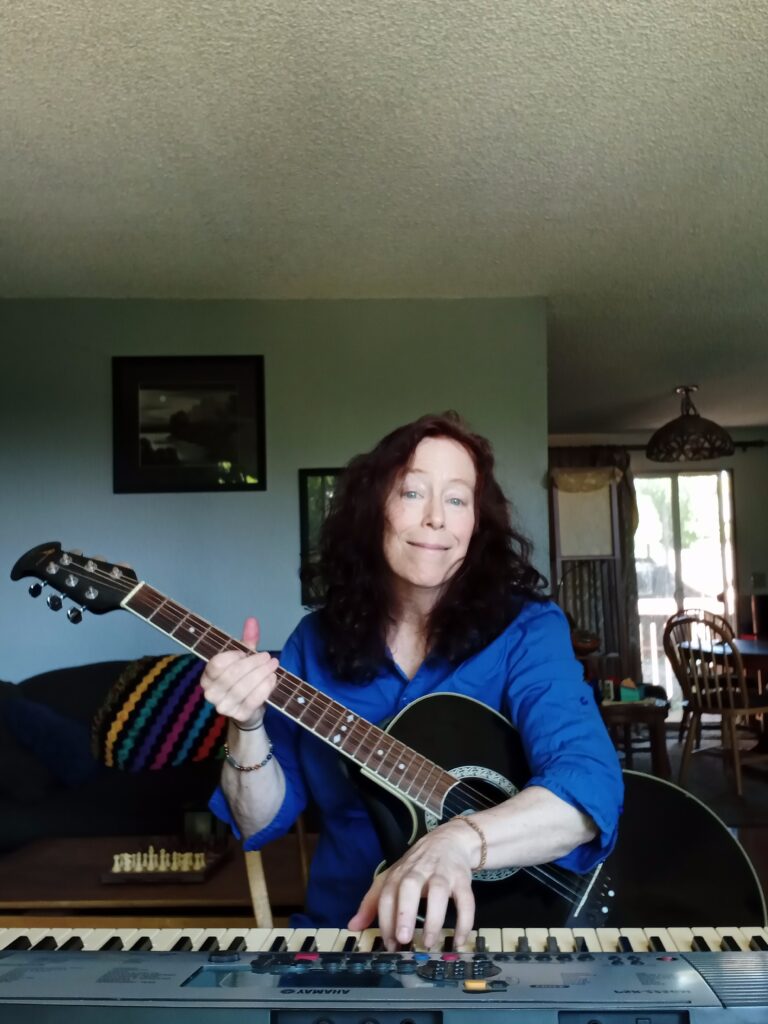
Amy Denio at home
AD: I’ve never cared for theory. It’s not visceral, and involves too much thinking. I think of it as an instrument of legitimization; anyway my relationship with music doesn’t need theory.
Ear training is essential ~ knowing intervals, relations between notes ~ that is great! I’m starting to add more ear training to my classes, and discovering that some of my students can’t play back a simple melody that I play to them.
About technique: After graduating from college, I was reflecting on the generic mindset/advice that success in life came from specializing. I remember the exact moment when I decided very firmly NOT to be a specialist, especially in terms of playing a variety of instruments. Each one brought out a different aspect of my musicality.
It is said that we’re each born with one song. I wanted to make sure that mine would be as colourful and interesting as possible, haha. As I advanced in age, it got difficult and frustrating. When I turned 50 I remember questioning why in the world I’d decided to be a multi-instrumentalist. It took so much effort to stay adept ~ and when that practice actually involves, say, staying proficient on 7 or 8 instruments, there is literally not enough time in the day for maintaining one’s ‘chops’!
But something happened. Time kept passing, and recently playing music has gotten incredibly easy and fun again. It’s said it takes at least 10,000 hours to become a master of one’s craft. I guess that’s one advantage of being 58 years old.
Amy also talked about a group she participates in — the Immersion Composition Society — in which each member, on occasion, writes 20 compositions in a day. Many of Amy’s ICS recordings are available here:
amydenio.bandcamp.com
5T: There are four pieces on Truth Is Up For Grabs based on poems by Pablo Neruda — were those pieces written together, or do you return to Neruda over time for inspiration? Are there other poets you like to work with?
How do you work from ‘the zone’ when you’re composing from a poem, or from a recipe? How do you choose a poem, recipe, etc? Do you ‘jam’ on it first (in the zone) before writing anything down?
‘Until The Doors Of Hatred Fall’ seems to be based closely on the words of the poem, ‘Song For The Mothers Of Slain Militiamen’ (& with Virago the poem is actually sung); & in ‘El Grand Orinator’, I believe I hear the great urination near the end of the piece…
AD: In the case of the Neruda poems in Truth is Up For Grabs, the process was purely intuitive.
On an Immersion Composition Society composing day I set out to write as many songs as possible.
What shall I do? O, I’ll look for my cool Neruda poetry book in English & original Spanish!
Found it, and took off the cellophane wrapper. I’d purchased it a few years earlier.
I cracked it open randomly. It was ‘Song For The Mothers of Slain Militiamen’. I gasped. PERFECT.
Suddenly a beloved guitar theme that I’d come up with in high school was circling in my head, so I built the song from there, looking at the first few lines to get an idea of cadence and tempo and feel and time signature. You’re right, it inspired ‘Until the Doors of Hatred Fall’.
I ended up setting 6 poems to music that dark winter day. Just looked, it was 2014.12.28. Here’s the original:
 Song For The Mothers Of Slain Militiamen
Song For The Mothers Of Slain Militiamen
* ‘El Grand Orinator’ (The Big Pisser) can be heard with lyrics, & this is an amazing thing! It’s like solving a puzzle, to hear all the drafts & different versions. Discerning the shape of Amy’s process. All six Neruda pieces are here in their original form.
amydenio.bandcamp.com/album/ics-20141228* Truth Is Up For Grabs guitarist Jane Mabry-Smith leads a group called Virago, featuring Amy Denio on bass & vocals, which performs a version of Amy’s ‘Until The Doors Of Hatred Fall’ — viragoseattle.bandcamp.com/track/until-the-doors-of-hatred-fall — this arrangement is also worth comparing! After listening to Virago and returning to Truth, I can hear Neruda’s words sliding through the Orchestra, slipping seamlessly from instrument to instrument. All versions serve to reveal each other.
AD: Had a similar story with my chamber work inspired by The Invisible Cities by Italo Calvino. I had both the English and the Italian translation of this amazing collection of conversations between Marco Polo and Kublai Khan. First time I read it, I couldn’t get it. But a few years later, I tried to read it again. And all these crazy things popped out that had actually happened in my life. I’d come across an idea that blew my mind and set to work with the book open, improvising until I found something that loosely matched the emotion or the story. I first composed for the 18-piece Young Composers Collective run by Joshua Kohl (1996), and later got grants to expand it & produce concerts & recordings with the Austrian chamber octet Die Knodel, with 4 singers from Seattle (1998).
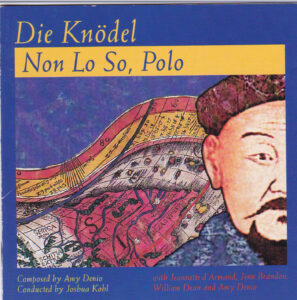
Amy Denio & Die Knödel: Non Lo So, Polo
AD: I love setting words to music, it really is fun and easy, haha![1]
The other thing about setting aside a day for Immersion Composition Society is that it calls for discipline to write as many songs as possible in one day. No waiting around for the muse to show up. Sit down and actually compose. The goal is 20 songs. My max is 9. Then whoever participated in the group that day meets up somewhere to share what they suffered to create all day. We figured out how to do it on-line last weekend, with COVID-19 in full force.
Everyone composes differently ~ it’s fascinating hearing about everyone’s creative process, emotional state, invented instrument & sound-making collection, etc.
A constant source of inspiration.
5T: I want to ask you about recipes, as you seem to have a lot of recipe songs. Did they all come from that one ICS day? Or do you enjoy ‘recipe’ as a metaphor, or form, for other reasons? (I’m getting the sense that anything can be a catalyst for the zone!)
AD: Yes, early on an ICS day I was making coffee, staring at the wall filled with cookbooks. RECIPES! That’s what I can make! That day I came up with ‘Rx for Disaster’, ‘Recipe for Love’ (took the lyrics, rewrote the chords), ‘Rx for the Afterlife’, ‘Rx for a Peanut Butter and Scrambled Egg Sandwich’, ‘Rx for the Wife’, ‘Rx for Recife’.
Some of these pupae reside in The Big Embrace.
I’ve always been fascinated by alchemy, so the concept of recipe fit right in.
5T: Could you give my readers an idea of what it is in alchemy that you find inspiring?
AD: What is it in alchemy that I find inspiring?
Alchemy is the vehicle that invites us to explore elements that are mysterious to us ~ and one of the few practices which consistently elicits surprise and inspiration.
It is my favorite learning process.
Even if the result is some kind of mental or physical explosion, at least the question is answered regarding how those elements work together!
5T: Does reiki have a place in your music?
AD: Reiki guides me as an improviser in music and in life.
Empathy and active listening are essential for my good health & ongoing studies of human existence.
I often review the first five lines of the Reiki prayer on the wall over my desk:
The secret art of inviting happiness
The miraculous medicine of all diseases
Just for today do not be angry
Do not worry and be filled with gratitude
Devote yourself to your work and be kind to people
Learn more about Amy Denio’s amazing ongoing musical journey:
amydenio.me
Artwork for Truth Is Up For Grabs and The Big Embrace were created by Anne Marie Grgich
[1] There are many ways of relating words to music, and I know Amy has used several of them. In this video she describes one method which relates notes to letters of the alphabet:
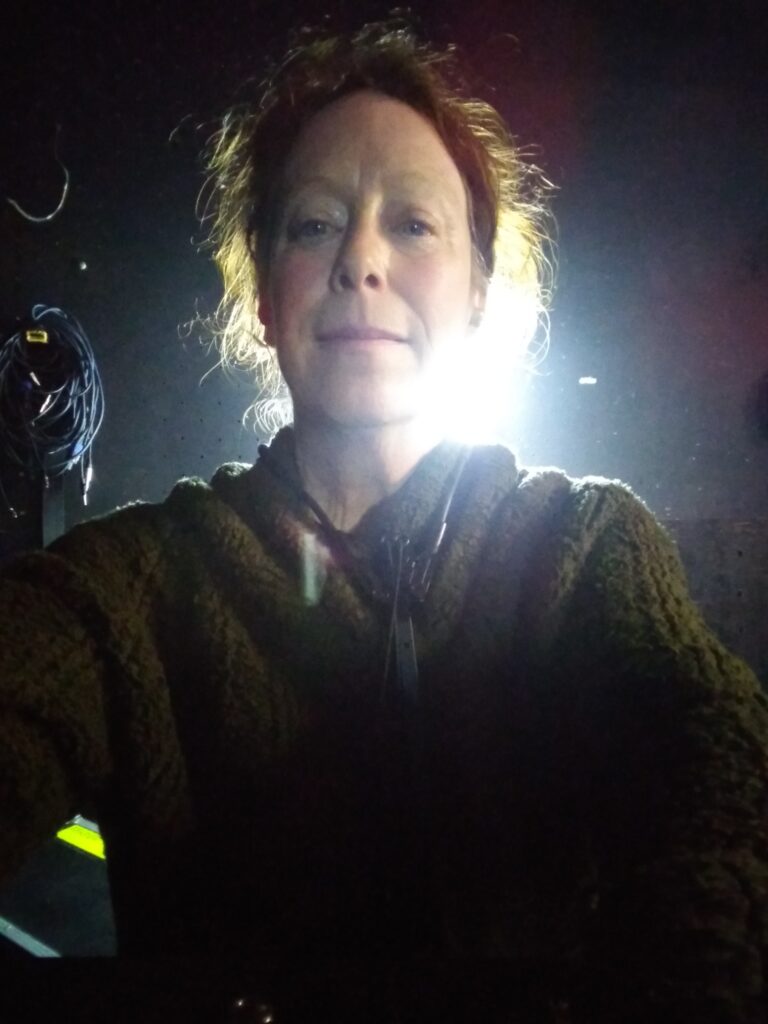
 Amy Denio — THE BIG EMBRACE
Amy Denio — THE BIG EMBRACE

